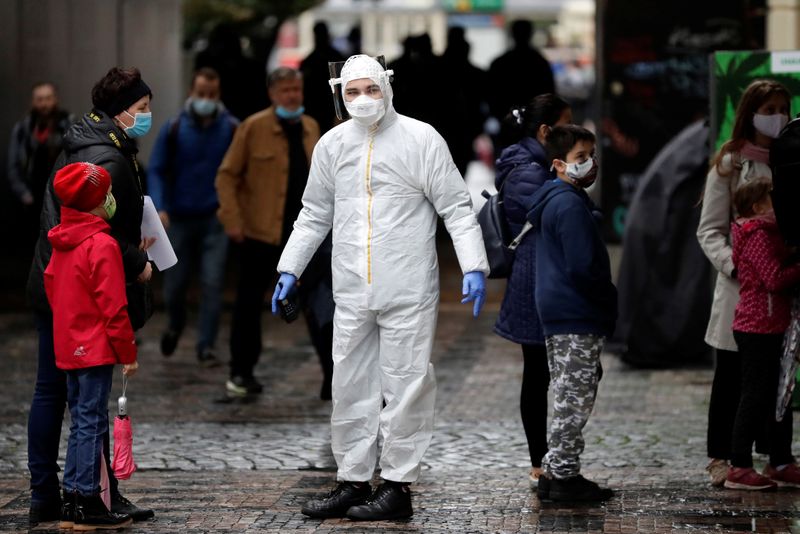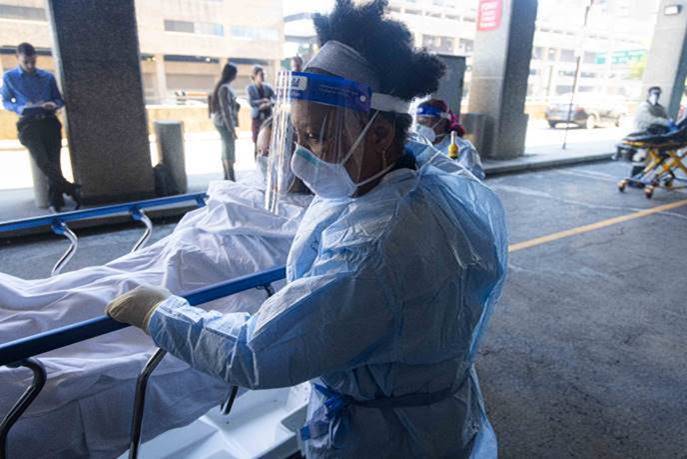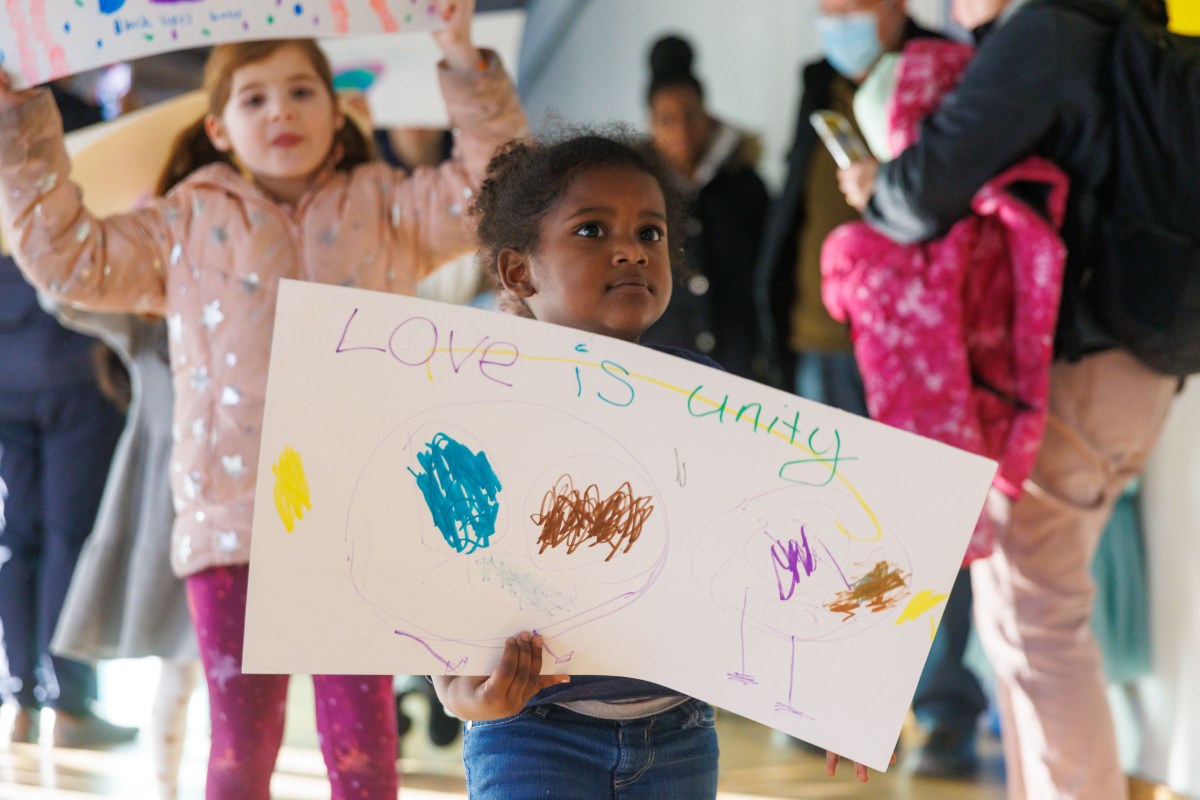PRAGUE (Reuters) – The Czech government on Wednesday called a state of emergency from Monday and imposed measures including limiting gatherings and banning musicals and opera to combat a huge surge of the coronavirus before it overwhelms the health system.
The country of 10.7 million has seen more than 43,000 cases and a 50% increase in deaths this month – Europe’s second largest jump in cases behind Spain – after a summer of lax measures and reluctance to toughen restrictions.
The surge is a turnaround from the first wave when the Czech government was among the most stringent with lockdowns that kept case numbers low but pushed the economy into a record contraction. It wants to avoid those measures now.
The state of emergency giving more powers starts on Oct. 5 and should last 30 days, the government said.
Health Minister Roman Prymula, an epidemiologist and army colonel who spearheaded the earlier pandemic measures and joined the cabinet this month after his predecessor quit amid the surge, immediately announced tighter measures to last for two weeks.
“We need to snip the chain of infections to get to levels significantly below the current ones and then relax and remain in some holding pattern until a vaccine comes,” Prymula told a news conference.
COVID-19 cases have jumped more this month than in all previous months of the pandemic combined. Health officials reported 1,965 new coronavirus cases on Tuesday.
Its total tally since March is 67,843 cases, up from around 25,000 at the start of September. Hospitalisations have soared to 976 people, Prymula said, up from 172 a month ago. Deaths have increased in September to 636.
For a graphic on COVID-19 cases in Europe COVID-19 cases in Europe:
https://graphics.reuters.com/HEALTH-CORONAVIRUS/rlgvdjglavo/chart.png
The state will limit indoor gatherings to 10 people and outdoor ones to 20. Sports matches will continue but without spectators. Theatres and cinemas can operate, but concerts, musicals and operas will be banned, all deemed riskier events due to the aerosol particles spread when singing.
In addition, secondary schools in higher risk regions will shift to distance learning on Monday, joining universities that have mostly gone online.
The government wants to cut the R number, showing how many people are likely to get infected by one person, below the neutral 1, from around 1.2 now. It reached 1.6 this month.
It wants to avoid strain on hospitals, which it says have enough beds at the moment but further increases would require reorganisation of care and postponing non-urgent procedures.
Infections among medical staff have also jumped – by six-fold among doctors, of which 394 are currently ill, and by sevenfold among nurses, according to the Medical Chamber.
The new measures will not limit a regional government and upper house election planned on Friday for Saturday. On Wednesday, those in quarantine were allowed to vote at special drive-in polling stations.
For a graphic on COVID-19 in the Czech Republic COVID-19 in the Czech Republic:
https://graphics.reuters.com/HEALTH-CORONAVIRUS/CZECH/nmopawojxpa/chart.png
* For an interactive graphic: https://tmsnrt.rs/36k0zyA
(Reporting by Jason Hovet and Jan Lopatka; Editing by Himani Sarkar, William Maclean and Alison Williamd)






















